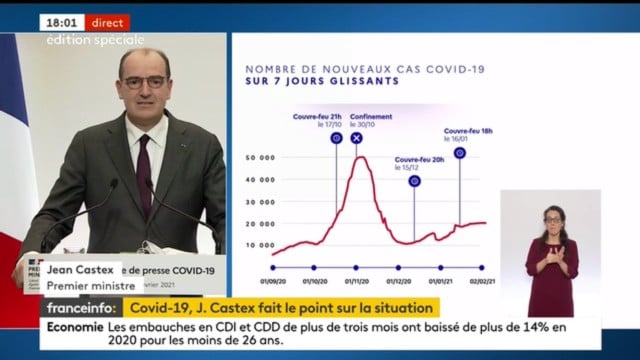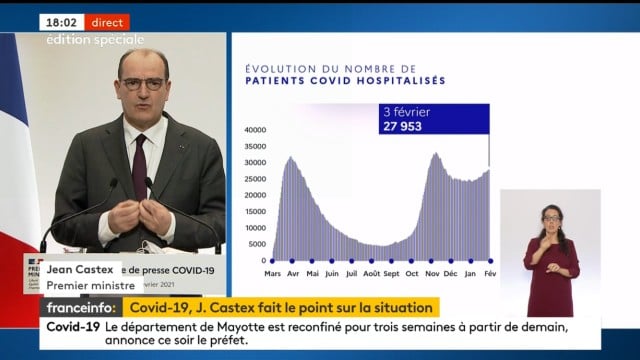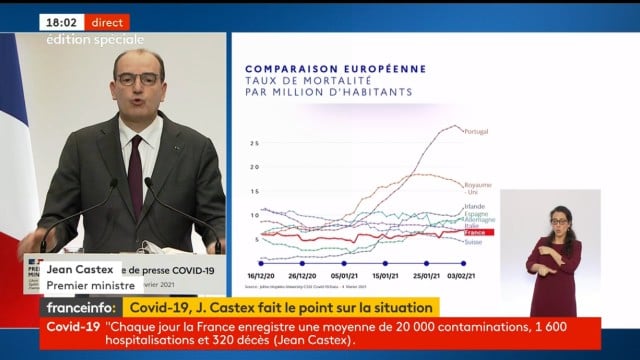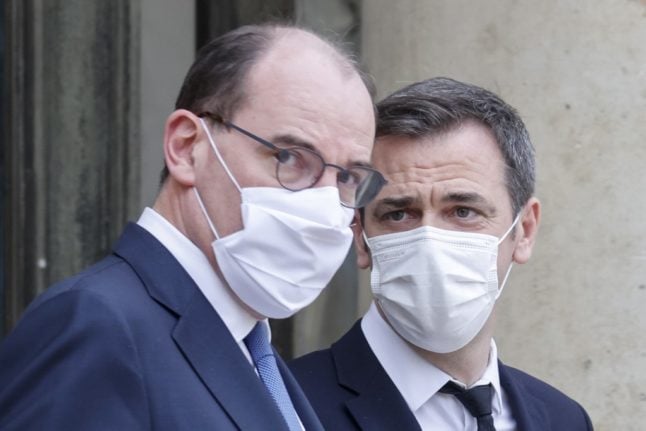Prime Minister Jean Castex told Thursday evening's press conference that the current state of the coronavirus epidemic in France did not warrant a new lockdown.
“A new lockdown can only be a last resort. Today’s situation does not justify it . . . we are not where we were in October,” he said.
“The objective we should set ourselves should not be to postpone (a lockdown) as long as possible, we should avoid it.”
The French PM did announce however that a new lockdown is to be imposed on the overseas territory of Mayotte.
School holidays begin on Saturday in some parts of France, and the PM confirmed that people will be able to travel over the holidays.
He said: “We have chosen not to limit travel between regions. Such a measure would have been justified if the circulation of the virus was very uneven between regions but this is not the case.”
He added that the great care that people took when travelling over the Christmas holidays – getting tests in advance, respecting rules and hygiene measures – saw the country avoiding a post-Christmas spike in cases.
READ ALSO February holidays in France – what are the rules and the official advice

This was described as a “last chance” to avoid another lockdown.
Covid-19 case numbers in France remain high but stable at around 20,000 new cases a day, but pressure is increasing on the country's hospitals with 64 percent of intensive care capacity now taken up with Covid patients.

The number of Covid patients in hospital recorded since March 2020
Castex said: “The health situation remains particularly fragile. Every day, France records an average of 20,000 new infections and 1,600 new hospitalisations.
“If the situation remains worrying, it is better than that in several of our neighbours”
“The mortality rate one of the lowest in Europe.”

Covid deaths around Europe per 1 million inhabitants
“The percentage of positive tests remains stable. . . The virus has not significantly increased its circulation these past weeks.”
There are also concerns around new, more contagious variants off the virus like the one first identified in the UK, which now accounts for 14 percent of all cases in France.
IN NUMBERS Are France's Covid stats good enough to avoid a third lockdown?
If, however, the health situation deteriorates, the government would “not hesitate to do what is necessary”, Castex added.
He said it was “not the time” to relax current restrictions, which include the closure of cafes and restaurants except for takeout meals, and of large shopping centres, and tough border restrictions, especially for non-EU travel.



 Please whitelist us to continue reading.
Please whitelist us to continue reading.
The real reason is that these spineless creatures are afraid of any demonstrations and being unpopular because of next year’s elections.